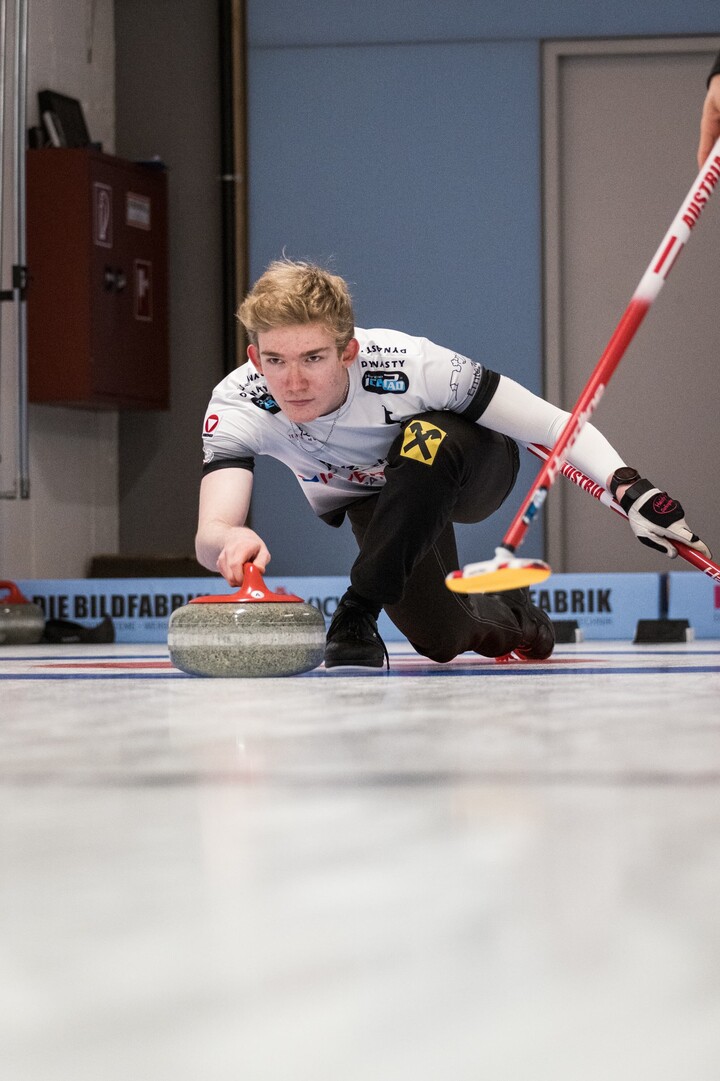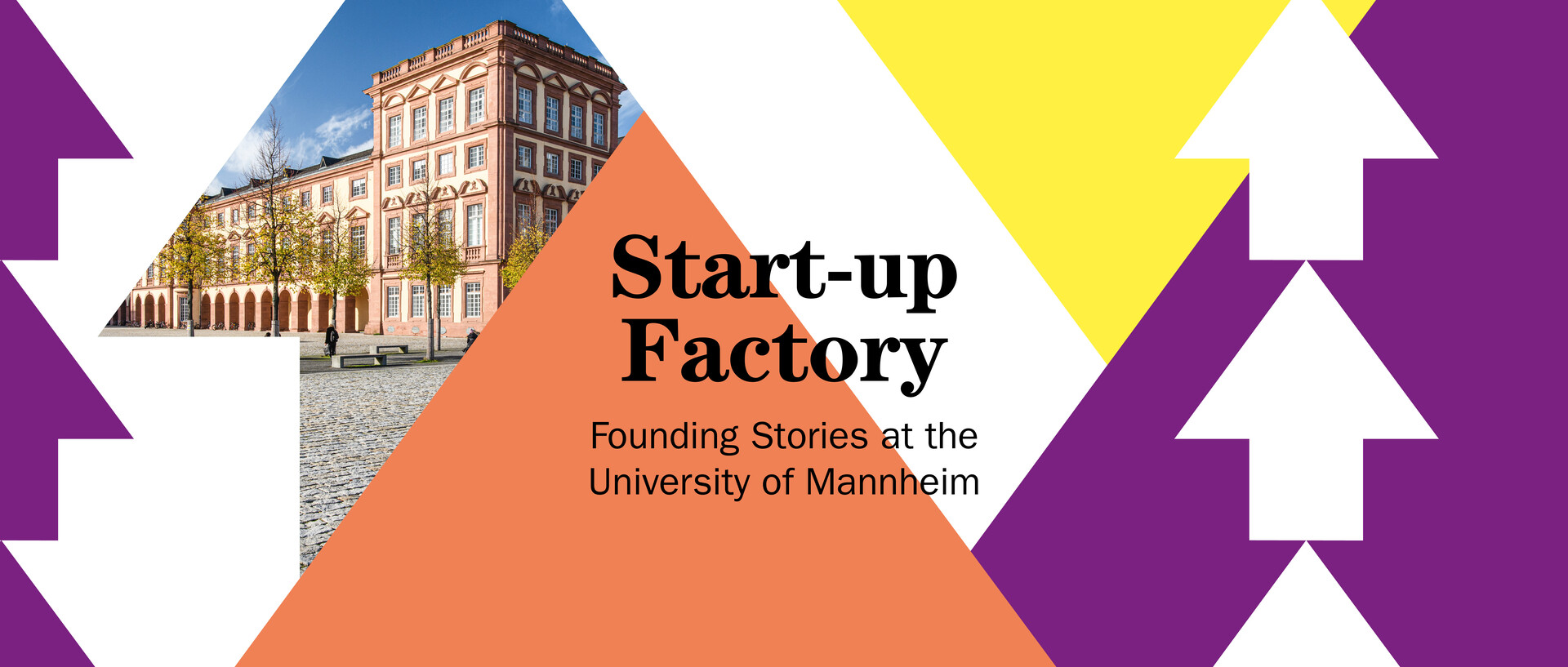The Ice Specialist
Talking to Moritz Jöchl, one of the university’s elite sports scholarship holders, might give you a sudden chill. As a competitive curler, he knows exactly what sets curling ice apart from ice hockey or figure skating rinks—making it difficult for athletes in this sport to find proper training conditions in Mannheim. One thing becomes clear right away: curling is a science in itself.

Jöchl is still relatively new to the University of Mannheim. The 20-year-old is in his second semester of a bachelor’s degree in business administration and has been supported by the Elite Sports Scholarship Rhine-Neckar Metropolitan Region since the start of his studies—as the program’s first-ever curler. The Austrian has been playing the sport since he was eleven years old. In St. Johann in Tyrol, a teacher introduced him to curling, and he has been playing ever since, mostly with three former schoolmates. This winter marks their final junior season, competing for the Kitzbühel Curling Club.
What is it about curling that excites Jöchl the most? “Curling is all about precision—it’s highly technical and much more physically demanding than it looks!” A match lasts two to two and a half hours. To maintain focus throughout the game and avoid being thrown off by fatigue, Jöchl does a lot of strength training. The Austrian curling federation also provides a sports psychologist for mental training. Jöchl is part of both the junior and mixed national teams and even won silver at last year’s Men’s B-Division European Championships in Scotland—albeit “only” as an alternate. But making the jump to the men’s division is one of his biggest goals. Another? Raising awareness for curling, which remains a niche sport even in Austria.
Practice in Mannheim
Jöchl has no trouble promoting his sport. His eyes light up when he talks about competing in the European Junior Curling Tour. Traveling with friends, the fair play, and the strong sense of community among curlers—it’s all part of what makes curling so special. “Oslo was definitely the highlight—for the stunning scenery as much as the competition,” he says, “but we’ve also played in the Czech Republic and Turkey.”
That same sense of camaraderie is just as strong in Mannheim. Naturally, Jöchl can’t travel to Kitzbühel for ice training on a regular basis, but the Curling Club Mannheim has welcomed him to practice with them. “I already knew some of the Mannheim curlers from tournaments, and they welcomed me with open arms,” he says. “Unfortunately, I haven’t been able to make it to practice very often because I’ve been attending a lot of training camps and competing at the Mixed World Championship over the past few months.”
What brings an Austrian curler to Mannheim? “I’m highly ambitious, and Mannheim is simply a top university for business administration,” Jöchl explains. “And, of course, the Elite Sports Scholarship played a big role in my decision.” The support he receives through the program helps him balance his athletic and academic ambitions.
Jöchl plays second on his team, typically delivering the third and fourth stones. “In curling, everyone has specific roles, but players rotate, so you have to be able to do everything,” he explains. His favorite part of the game is sweeping—though it only has the desired effect on proper curling ice, which is carefully built up layer by layer and then sprayed with tiny water droplets. These droplets create pebbling, which, when warmed by sweeping, forms a thin layer of water that allows the stone to slide more effectively. Curious? If you want to give curling a try, you’re welcome to join the Curling Club Mannheim at Eissportzentrum Herzogenried—or just drop by to see its unique ice in action.
Text: Dr. Maartje Koschorreck / April 2025
